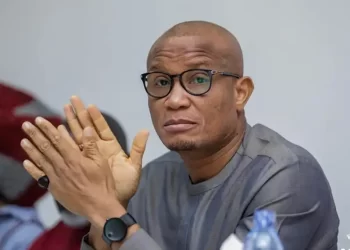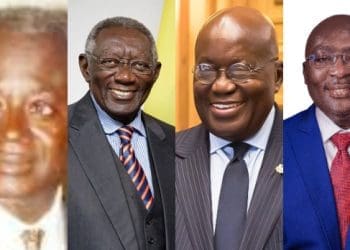Migration between Ghana and Canada continues to expand, creating vibrant networks of families, businesses and institutions that now form a central pillar of the two countries’ longstanding partnership.
The High Commissioner of Canada to Ghana, Togo and Sierra Leone, Madam Myriam Montrat, says the number of Ghanaians living in Canada has grown to more than 100,000, forming one of the most dynamic African diaspora communities in the country.
Many, she said, have become influential academics, entrepreneurs, activists, athletes and artists, contributing to Canada’s social fabric and shaping its cultural identity.
“Ghanaians have made important contributions to Canada and become part of our society’s fabric,” she told journalists at a media reception in Accra.
At the same time, many Canadians live, work, study and invest in Ghana, deepening connections that span education, business, research collaborations and cultural exchange.
“Families, businesses, research partnerships and friendships are being built by the two nations across the Atlantic,” Madam Montrat said, adding that the High Commission relies on these human bridges to advance mutual prosperity, strengthen democratic institutions and support innovation.
A changing world and a new strategy
But she cautioned that these partnerships are evolving at a time of global uncertainty.
From shifting economies to rising instability, she said Canada is refocusing its foreign policy on two priorities: trade diversification and peace and security partnerships.
In Africa, this shift is guided by a new policy framework—A Partnership for Prosperity and Shared Security—launched earlier this year to enhance security cooperation and deepen commercial ties with African nations.
The strategy, she emphasised, is built on mutual respect, peer-to-peer cooperation and strong people-to-people relationships.
What it means for Ghana
For Ghana, Canada’s renewed approach means sustained support for inclusive and sustainable economic growth, especially for women and youth.
This includes backing entrepreneurs, supporting green and digital transitions, and creating opportunities for Ghanaian and Canadian businesses to collaborate in ways that generate decent jobs in both countries.
Canada also plans to maintain its support for Ghanaian institutions and civil society organisations that work to strengthen democracy, protect human rights—including women’s rights—and prevent exclusion.
Ghana’s leadership as a regional anchor of peace makes cooperation in defence and security a priority, including through the Elsie Initiative and support for accountable security institutions.
Strengthening people-to-people ties
Madam Montrat underscored that the foundation of the Ghana–Canada partnership remains people—to—people connections—expanding through education, culture, tourism and the lived experiences of citizens crossing the Atlantic in both directions.
Her team, she said, is working to give Ghanaian and Canadian students, businesses and institutions the tools to deepen these exchanges.
Addressing the Ghanaian media, she described journalists as essential partners in shaping the narrative of cooperation.
“You are not just observers of the Canada–Ghana partnership; you are part of it,” she said.
“Ghana’s media landscape is a cornerstone of democracy and an essential partner for all who value transparency, accountability and informed public debate.”
She added that the High Commission hopes to collaborate more closely with the media—to share information, amplify the voices of Canadian and Ghanaian changemakers, and ensure that Ghanaians recognise themselves in the stories of bilateral cooperation.
She also expressed interest in understanding the challenges facing journalists today—sustaining quality reporting, ensuring safety, responding to political and regulatory pressures, and navigating the complex digital marketplace.
Madam Montrat concluded by expressing hope that engagements such as the reception would offer space for honest dialogue and ideas on how partners like Canada can continue to support Ghana’s media, strengthen democratic practice and expand the bonds of friendship across the Atlantic.













